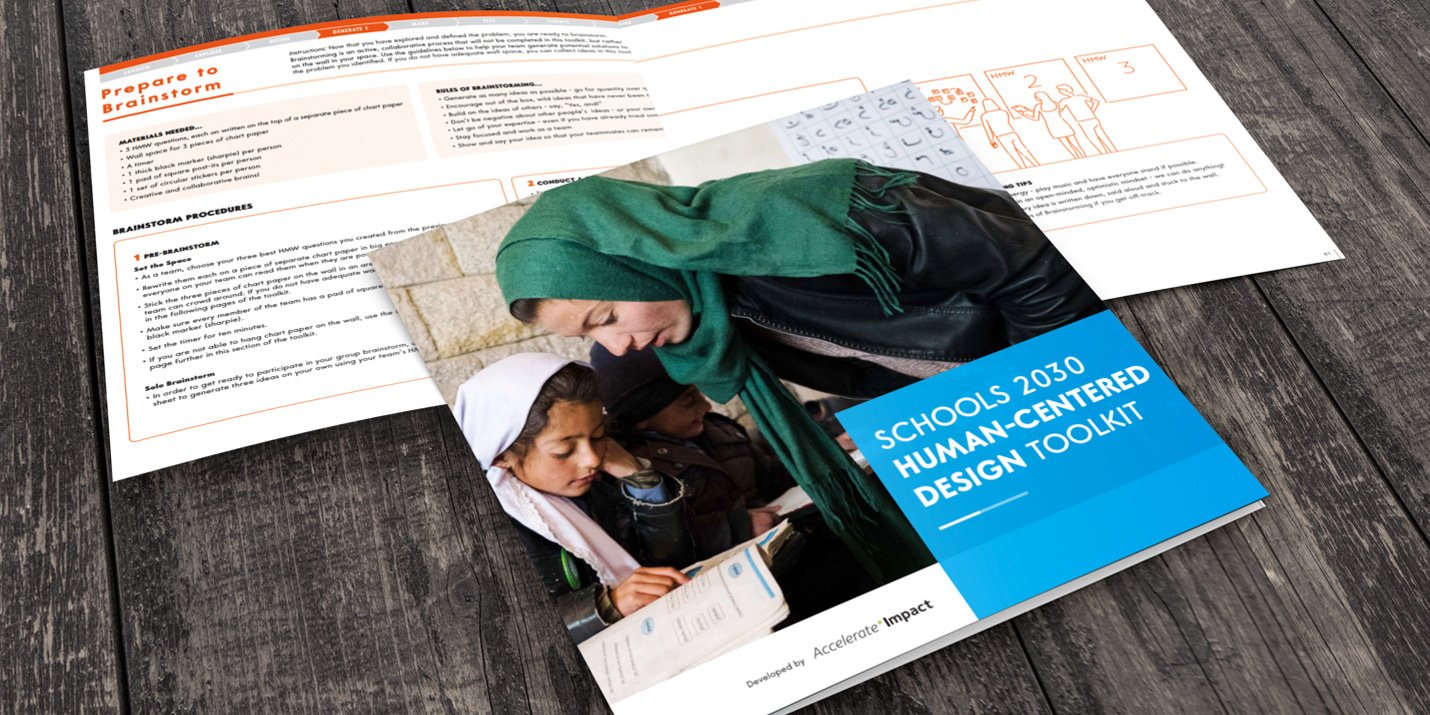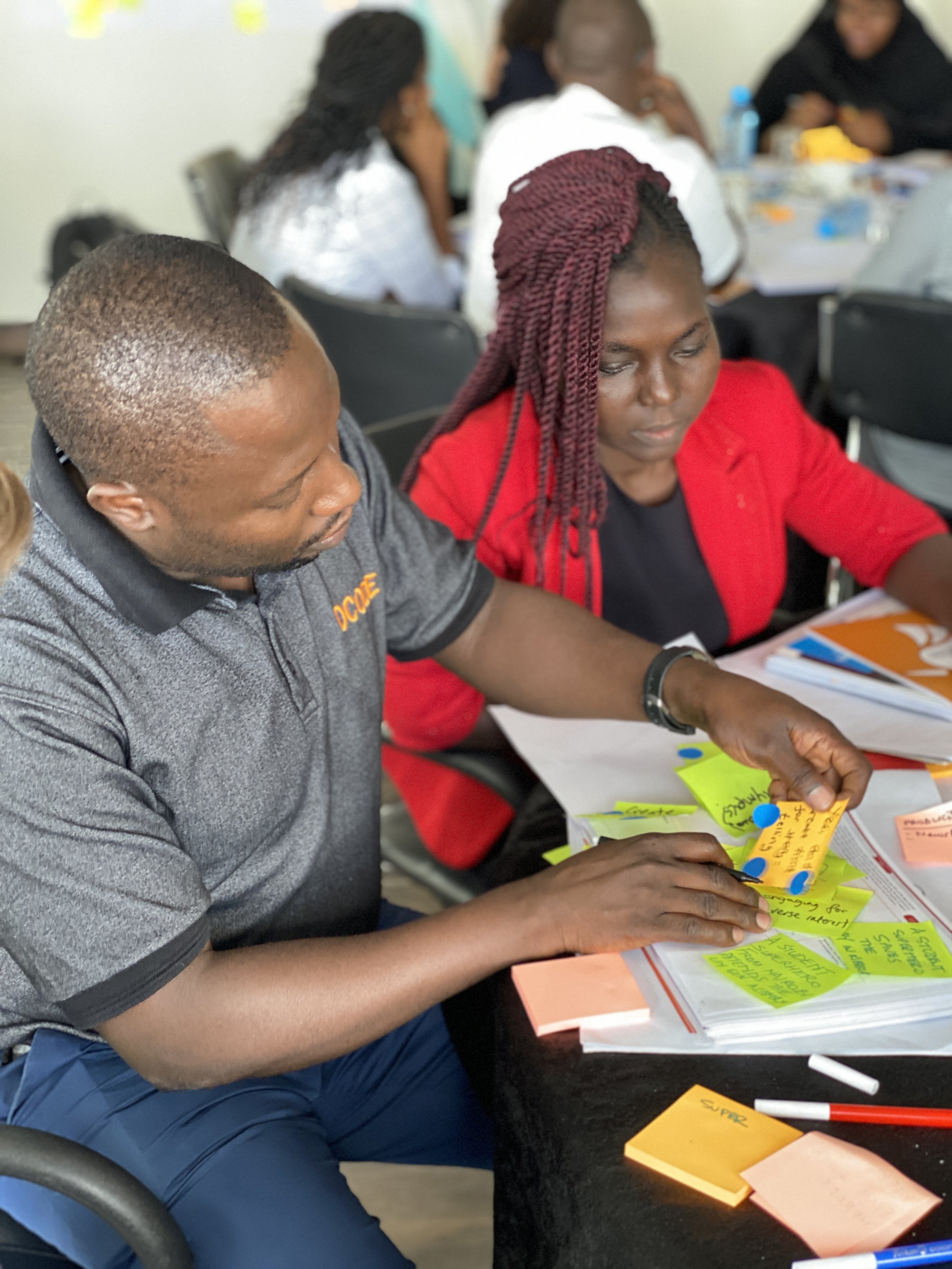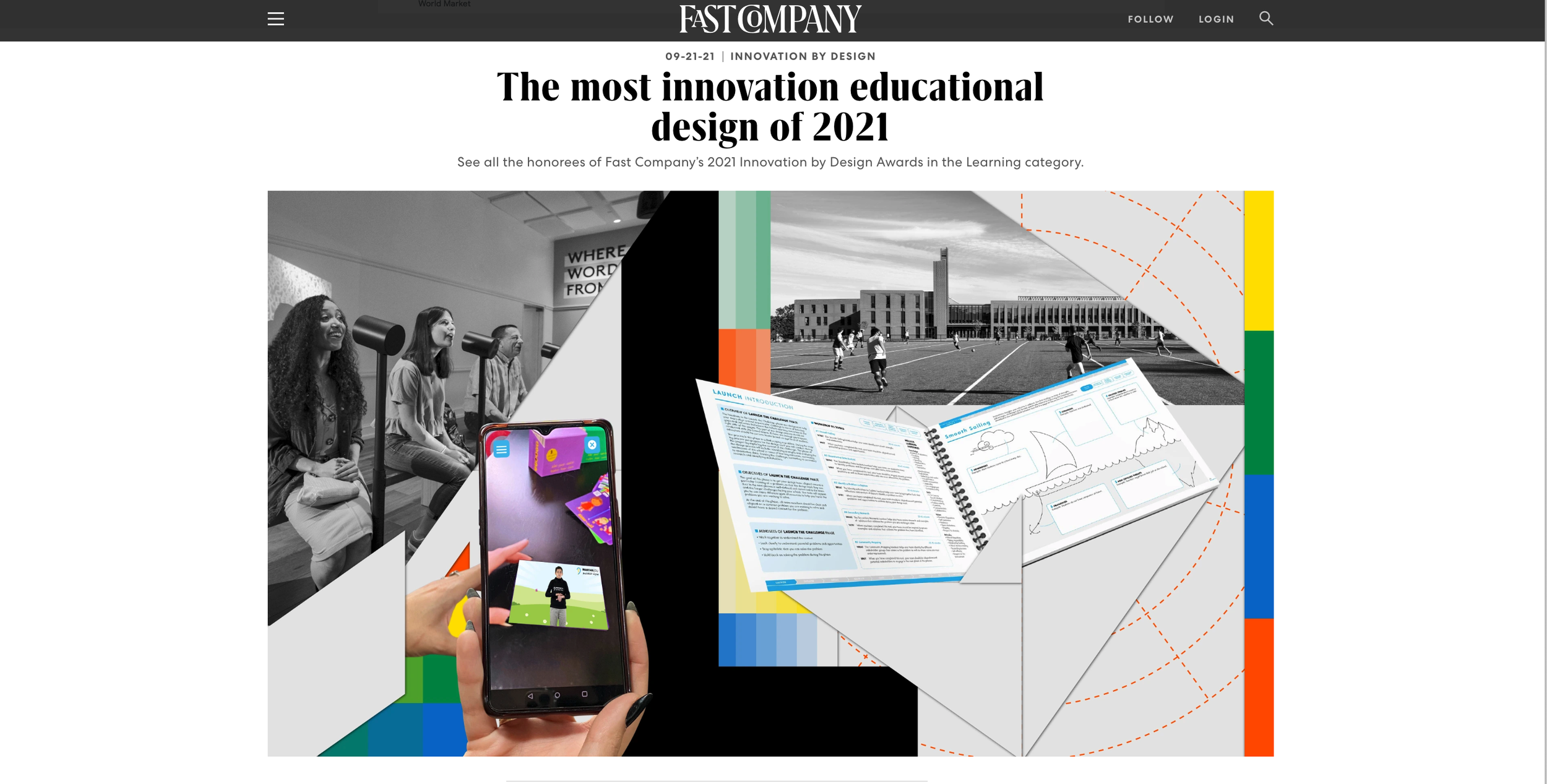Aga Khan Foundation Schools2030
The HCD Toolkit is being utilized in 1,000 schools across 10 countries and is reaching as many of 500,000 learners.
This toolkit is one part of a decade-long initiative from the Aga Khan Foundation called Schools2030, their aim of which is to improve learning outcomes across the world by providing resources for grassroots innovation.
I co-created this document with Katie Krummeck, and worked closely with the AKF Innovation team. We spent three months compiling the best practices in human-centered design, and creating many new resources and methods to support a more self-directed approach to the HCD process. Our creative process started with design research and interviewing AKF staff and local teachers in all ten countries that are engaged in the School2030 initiative. We built a set of design principles that guided our work and which led us to building a set of tools that would be accessible and supportive of a team of educators that are new to the HCD process.

The importance of the HCD Toolkit
“The AKF-led Schools2030 programme is delighted to globally launch the free, open-source HCD Toolkit, which aims to equip educators across 1000 schools with foundational design skills and tools to amplify their work & improve the learning outcomes of students.”
Winner of multiple design
and
innovation awards.
Fast Company Innovation Award 2021 Honorable Mention for Learning Innovation Category and 2020 Core77 Award: Education Initiative Runner Up.
The Human-Centered Design (HCD) toolkit is a 183-page workbook that was created to be a self-guided resource for K12 teacher and leaders all over the world.
The workbook experience is designed to be a step by step guide to completing a Human-Centered Design project. A team can start with page one and go page by page following each worksheet and reflection to design a robust and innovation solution to a local school challenge.
All of the resources (toolkit, facilitator guides, videos, and demos) are available for free from the School2030 website
Although, the tools are designed for K12 teachers, the toolkit is just as useful for any team looking for innovative solutions and excited about using the human-centered design process.
The initial project scope also included four global in-person training sessions for program leaders in the Schools2030 program. Katie Krummeck and I lead the first 5-day training in Nairobi, Kenya in February 2020. This was an amazing way to prototype the full toolkit and resources with people from Kenya, Uganda, and Tanzania. Participants used the toolkit to complete a multi-day design sprint and experience the full 183 page document.


REDESIGNING FOR NEW CONTEXT
By March of 2020, it was clear that the COVID-19 Pandemic was going to fundamentally shift the project. Katie and I transitioned all of the training materials and the toolkit into a virtual training on Zoom and using Mural, a digital collaborative online platform. We led a series of global training with AKF teams from all ten countries and built an amazing online learning community focused on HCD.
Press and Articles
-
In this article for the Journal of Design and Creative Technologies, designers Gray Garmon and Katie Krummeck explore how to build capacity in people new to the design process in order to empower those closest to the challenges facing communities to make change. Read the full article here
-
An interview with education designers, Gray Garmon and Katie Krummeck, who are working with the Schools2030 team to give them the tools to use Human-Centred Design in their education programmes. Watch the full interview on youtube
-
A total of 100 schools in Kampala and Arua districts are set to benefit from The Aga Khan Foundation’s (AKF) Schools2030 project, a move aimed at equipping front line teachers with technology skills. Read the full article here


